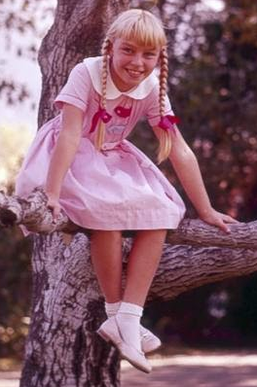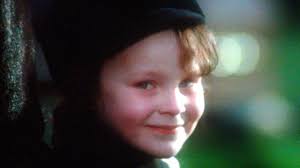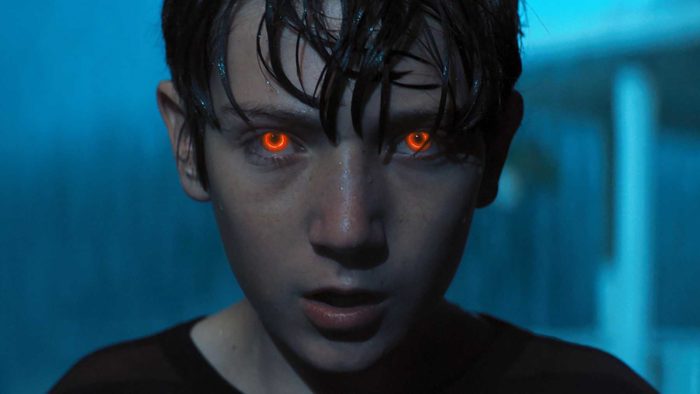How Do Recent Horror Films Explore the ‘Evil Child’ Trope?
Nature vs. nurture is the underpinning motivation of the many of the horror and thriller flicks of evil child protagonists.1 These movies chill us at the heart because we, in the modern world, especially in the West, have certain expectations about children:
- Children are inherently innocent, pure, and good.
- Childhood should be guarded and protected from the evils of the world
- Children are separate from being an adult.
These ideas about children and childhood are relatively new. Before the late 19th century, adults viewed children as “little adults.” They had responsibilities on the same plane as adults as well as expectations.
Using a biblical example, The Lord called Samuel at seven years old to be a prophet: he was to pass judgement on Eli the priest and let him that that thus saith the Lord, you about to get it. Did the Lord consider Samuel too young to fulfill this task?
In the following the movies I am going to comment on, I am going to expand on how the perception of children/childhood differs from the reality of what a child is. A child is a free-willed individual who chooses to do right or wrong. This does not mean children do not need guidance, help, and a structure. On the contrary, the Bible says to train up a child in the way he should go so that when he is old, he will not depart from it.
The Bad Seed (1956): born evil
 Rhoda Penmark looks like a normal girl of the 1950s: blonde hair, blue eyes, and an effervescent attitude. But, as her mother begins to realize, her normality is only a façade. She’s really a sociopath, psychopath, and, cherry on top, a serial killer. She’s manipulative and cunning. I would almost say she’s a savant although that’s not explored in the movie. When her mother, Christine, finds out she was adopted and that her mother is a serial killer, she believes she passed on “the bad seed,” genetically speaking, to her daughter.
Rhoda Penmark looks like a normal girl of the 1950s: blonde hair, blue eyes, and an effervescent attitude. But, as her mother begins to realize, her normality is only a façade. She’s really a sociopath, psychopath, and, cherry on top, a serial killer. She’s manipulative and cunning. I would almost say she’s a savant although that’s not explored in the movie. When her mother, Christine, finds out she was adopted and that her mother is a serial killer, she believes she passed on “the bad seed,” genetically speaking, to her daughter.
After all, Rhoda has a good life. No evidence of mistreatment from her parents or anyone else. The only thing is that kids sensed something was wrong with her and kept their distance. Rhoda can fool the adults of town because most have the view about children as I stated before. Only a couple can see past the mask to the real person. When Rhoda finds out they know the real her, she gets rid of them.
As far as the children in town who are not fooled by Rhoda, this is a classic understanding of children – that children can sense evil because they have not been corrupted by the world. Alas! If only that were true!
The character of Rhoda Penmark is fictional but there have been children who exhibit a sociopathic behavior. They are born without conscious or empathy. A real-life example would be the BTK serial killer. He was not abused, hurt, or mistreated as a child. Life and film seem to suggest that there’s nothing you can do about children like this: born inherently evil, stained, and bad. The opposite of my first set of expectations.
In the book that the movie is based on, Christine attempts to murder Rhoda and then she kills herself. This was changed in the 1956 movie due to the Hays Code which did not allow for ‘crime to pay’. In the 1985 remake and other adaptations, the ending remains true to book’s original form.
The Omen (1976): evil destiny
All you have to say is, ‘Damien’ and most people will think of this movie. It explores the idea that a man, who’s own son died without his wife knowing about, switches babies at the hospital and  they raise the boy as his own. Everything is fine…until one day…
they raise the boy as his own. Everything is fine…until one day…
The boy possesses many peculiar abilities. Animals are afraid of him (except Rottweilers), people are killed in unexplainable ways, and people will give their lives for him. The puzzle of this child is soon revealed when it is discovered he is the Antichrist, destined (in the movie anyway) to prevent the Second Coming of Christ.
This movie spawned a franchise and a remake and endless pop culture references. Like Rhoda Penmark, Damien Thorn ushered in horror in a different kind of way with children as the evil protagonist – the one sent to fulfill their destiny. Unlike Rhoda, who was born evil, Damien is born to fulfill evil. As a child, from baby to five years old (or seven) he’s fine but then, his true nature comes to fruition. Awakened because that is his purpose.
Immediately, I thought of Judas Iscariot, the one who betrayed Christ. Most people aren’t going around named their kids Judas, even though back in the day, it was a nice name. There’s not a lot known of his childhood but sadder words have never been spoken for Christ to say, “It would have been better if he’d never been born.”
Evil destiny tends to have a deterministic view. You can’t be anything other than you are because this is your purpose. This evil thing is what you were meant for. Instead of being guarding and protected from the evils of the world, you bring the evil.
Brightburn (2019): Evil conqueror
 Although I will limit my comments to the constraints of this post, I have to say that this movie had so much potential that was unrealized. Maybe in a future post, I will go into it.
Although I will limit my comments to the constraints of this post, I have to say that this movie had so much potential that was unrealized. Maybe in a future post, I will go into it.
Suffice it to say, Brandon Breyer ain’t from around here. A wonderful twist on the superhero trope, we have a supervillain. Laden with powers and a need to conquer the world. “Take the World” he screams at one point in the movie. The thing with Brandon is that he is sent to conquer. To infiltrate, to scout out, and (hopefully in the sequel) report back to whoever about Earth and its occupant.
Brandon represents ‘supposedly’ the blank canvas of children. He crashed to earth, has power (whether from the earth’s atmosphere or not, we don’t know) and walks among us. Then, when he turns twelve, his true purpose, to conquer is activated. Because the makers of the movie decided to go along a horror trend as opposed to an action or thriller take, the later part of the movie is taken up with horror gore and the like.
There are times in the movie where he seems to fight against his nature. After all, his adoptive parents love him, and he knows they do. But, are they simple going to be collateral damage or will he turn away from his purpose?
After all this talk of bad children, you may be thinking, “Geez, Parker!” My point in mentioning the Bad Seed is that they are interesting characters to see portrayed on TV. It shows us that children are NOT a blank canvas but that they come with impressions. Impressions that are molded inherently, through, biology, destiny, or function.
Does that mean that the “bad seed” cannot be redeemed?
Of course not! God is more powerful than all the evil in the world. In Matthew 17, the bring a young boy to him who they aptly call a ‘lunatick’ and Jesus scolds them. Not because the boy’s a lunatick, but because they had little faith. And then He does want only He can do and rebuked the evil spirit in the boy. But he does say, in verse 21 “Howbeit this kind goeth not out but by prayer and fasting.” Meaning, it’s gonna be a fight on your hands.
In the young and in the old no one is ever to far from God’s love that He cannot reach them. However, the Bad Seed makes for fascinating storytelling for our horror fans out there.
And for parents who say, “Glad that ain’t my kid!”
Or is it?
What are some things I may have missed? What are some movies with evil kid protagonists? In each movie, could each child have been saved? Share your thoughts.
- Editor’s note: Please welcome Parker J. Cole, our new regular SpecFaith writer! We’ll feature her articles every other Wednesday. ↩







































I saw Brightburn advertised. Looked interesting. I am really wondering why it fell short…
It fell short in execution, and I think in keeping it strictly in the horror genre. In the horror genre, the kills are spectacular (I know, weird) and that element of creepy. I think by keeping the focus on that, they sacrificed character development. Although the acting was phenomenal, the story didn’t quite boost it. There is one scene in the movie (slight spoiler) where they find *magazines* in his room. At first glance, it just seem like it *the women* but then, it turns into pictures of entrails.
Due to the genre itself, that’s not UNEXPECTED but the question is why? Why does the kid like looking at entrails? I feel like that particular blip was just thrown in there to make us know, hey, Brandon’s got guts mixed in with his *magazines* but there’s no explanation as to why. It’s to build tension, not story.
And the thing is that I really liked the premise of the movie and there are so many untangled threads they could go into. They’re doing a sequel when he’s an adult and hopefully expanding it to give us some more insight into his character, not just his evil deeds.
As someone who’s worked with children for a long time, I know quite well that all kids are born with a hefty dose of sin nature! lol. Sweet and innocent, yes. But not beyond great evil – just without the muscle tone to make it work.
I’ve always had dreams with evil or conflicted children. It’s something I try to incorporate in my books and stories, too.
And, since I’m not a horror fan, it’s nice to read your perspective on the trope!
Thank you so much for saying so! My primary works are all romance. While I love romance, when I was invited to be a contributor to Speculative Faith, I wanted to focus on things other than that. At the end of the day, I do like horror (but only certain types — thriller, psychological, even artistic — not, torture which a lot of people believe is the poster child of horror and it isn’t) and I hope to use this to express my viewpoints as well as I can.